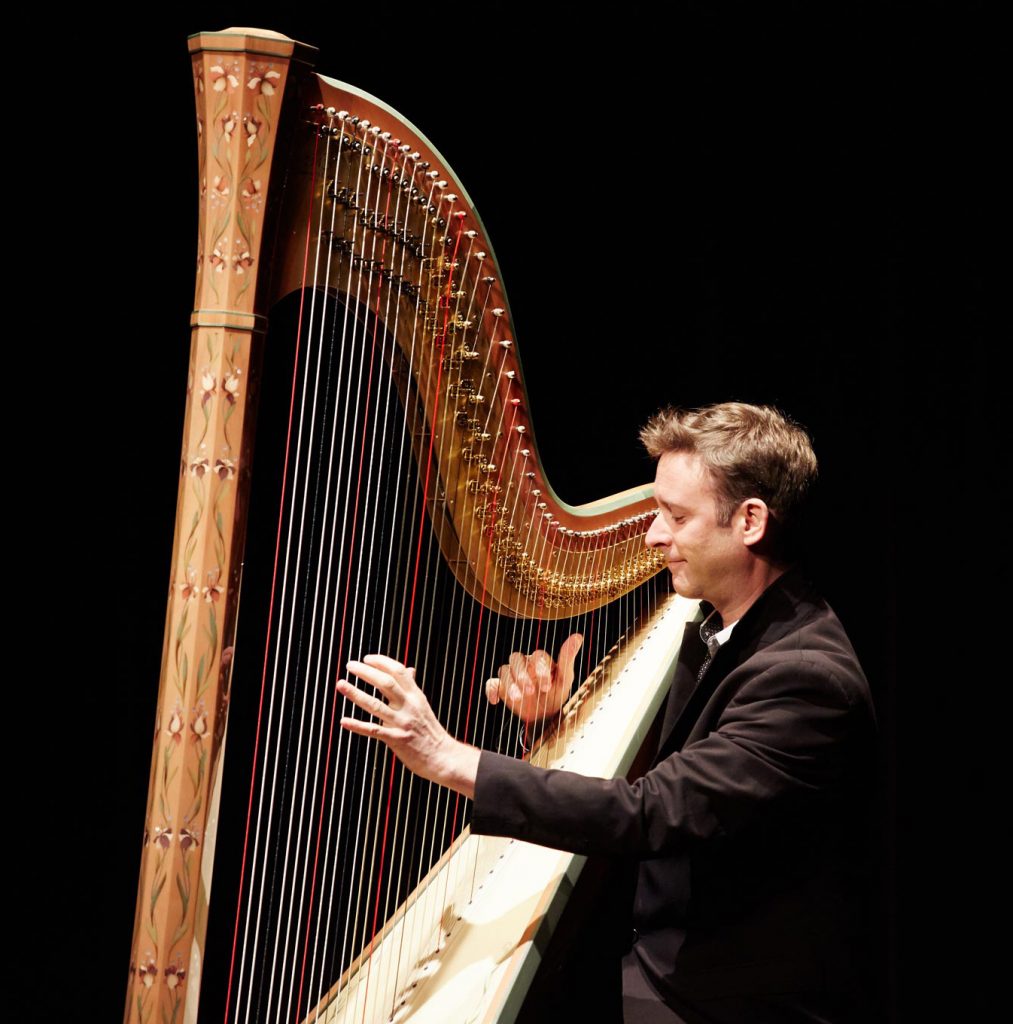Camac Blog
Blassel plays Beethoven in Bonn
Latest
February 13, 2020
 Good news for Beethoven fans: 2020 is the 250th anniversary of his birth, and the classical music world is a-frenzy. Concert halls, series, and labels across the world are celebrating his extraordinary music. We have never had the chance to hear so much Beethoven: concertos, chamber music, and the piano at the heart of it all.
Good news for Beethoven fans: 2020 is the 250th anniversary of his birth, and the classical music world is a-frenzy. Concert halls, series, and labels across the world are celebrating his extraordinary music. We have never had the chance to hear so much Beethoven: concertos, chamber music, and the piano at the heart of it all.
Should you have imagined that harpists could only watch wistfully from the sidelines…this is not true, thanks to Sylvain Blassel.
When I play pieces on the harp that were originally written for other instruments, I do not try to imitate the sound of the original instrument. On the contrary, I accept the harp completely – I want to reveal its capabilities, and show how it is worthy of the score.
The harp’s mechanism was quite basic until 1810, when numerous innovations allowed the new, double-action instrument to play a full part in the increasingly chromatic music of the day. By this time however, Beethoven was almost completely deaf. What he could remember of the harp were the small, salon instruments.
Today’s concert grand pianos are even more distant from an early 19th century Broadwood, yet nobody questions their suitability for Beethoven. I don’t believe that using a different instrument disfigures a work. We see them in a different light, but their faces do not change. This is also why I prefer to adapt the instrument to the text, and not the other way round.
Sylvain Blassel
Sylvain Blassel has earned his reputation as a specialist in the virtuoso adaptation of music hitherto undreamt-of on the harp. As anybody who has witnessed his interpretations of Bach, Liszt and Wagner will testify, he does not perform transcriptions of digestible solos, but rather giants of the piano and orchestra repertoire. In 2020, he’s focusing on Beethoven’s piano sonatas and variations, some of his chamber music, and comparative repertoire by other composers.
The question of performance on other instruments applies to the greatest composers more than anyone. Can Beethoven’s music be performed on the harp? Do you dare? If you dare, do you adapt the text to the instrument, or the instrument to the text? How do you defend those decisions? There are many questions, and the better the composer, the more interesting they become. Perhaps their music brings new sides of the harp to life; perhaps, like no other music. Maybe, too, the harp sheds new light on the text. Ultimately, all these explorations lead to one big point. What can transcription tell us about the genius of Beethoven – during his life, and today?

“One cannot really speak of transcription per se. With Beethoven, as with Bach, each note is important. Always, my first approach is to adapt my technique to the text, not the other way round. This isn’t to be “loyal to the text”, which can become a platitude – it’s because every note written by Beethoven is the best one!”
– Sylvain Blassel
On Friday, March 13th at 7:30PM, we are delighted to be sponsoring Sylvain Blassel playing Beethoven, in the composer’s birthplace, Bonn. On the programme: the Bagatelles op. 33, op. 119 and op. 126, followed by the last piano sonata, no.32 op. 111.
The concert venue is a stone’s throw from our Bonn branch, and Sylvain will be giving a masterclass the following day at Camac Bonn.
Entry to both concert and masterclass is free of charge (we are collecting donations for the church kindly hosting the concert). Please reserve your seats online here, or directly with Andrea Thiele of Camac Bonn.
